If the misery of the poor be caused not by the laws of nature, but by our institutions, great is our sin
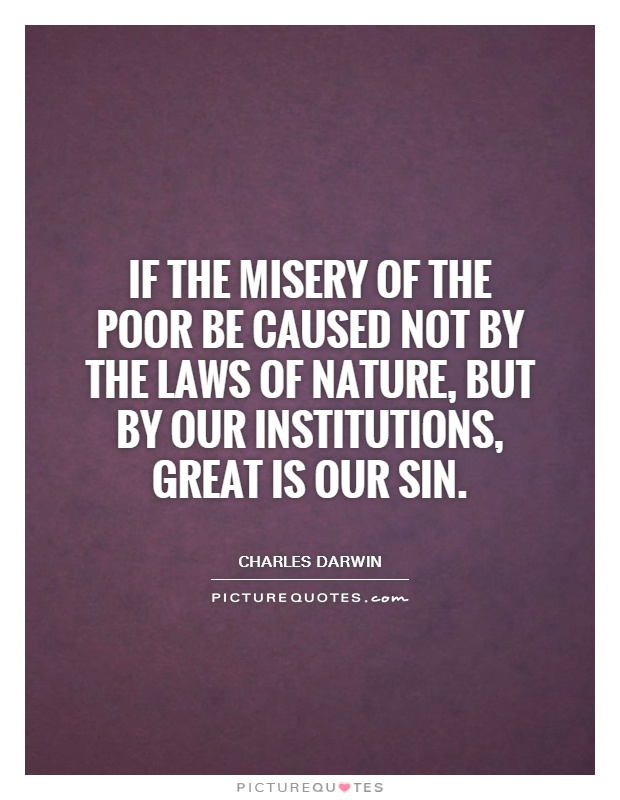
If the misery of the poor be caused not by the laws of nature, but by our institutions, great is our sin
Charles Darwin, the renowned naturalist and biologist, is best known for his groundbreaking theory of evolution by natural selection. However, Darwin was also deeply concerned with the social implications of his work and the impact of human institutions on the well-being of society. In his writings, Darwin often reflected on the inequalities and injustices that he observed in the world around him, particularly the suffering of the poor.Darwin believed that the misery of the poor was not simply a result of the laws of nature, but rather a consequence of the social and economic institutions that governed society. He recognized that poverty and inequality were not inevitable outcomes of natural selection, but rather the result of human actions and decisions. In his view, if the suffering of the poor was caused by our institutions, then it was a great sin that needed to be addressed.
Darwin's concern for the plight of the poor was rooted in his understanding of the interconnectedness of all living beings. He saw humans as part of the natural world, subject to the same laws of evolution and adaptation as other species. As such, he believed that it was our moral responsibility to care for those who were less fortunate and to work towards creating a more just and equitable society.
Darwin's ideas on social justice were ahead of his time, and his writings on the subject were often controversial. He was criticized by some for straying outside the realm of science and delving into politics and ethics. However, Darwin saw no distinction between the natural world and the human world, and he believed that it was essential to consider the social implications of his work.

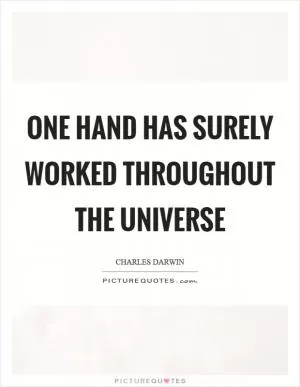




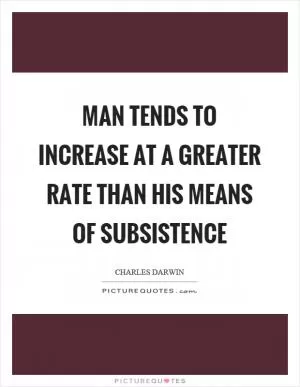


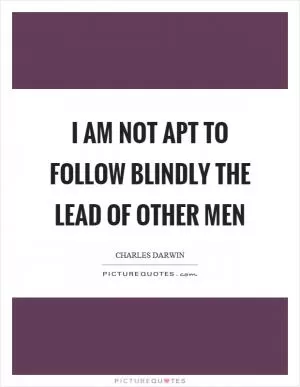
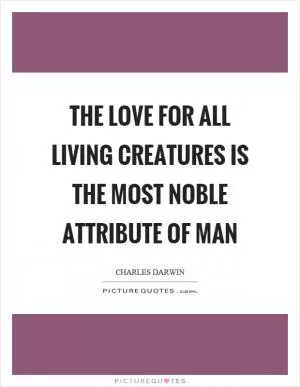
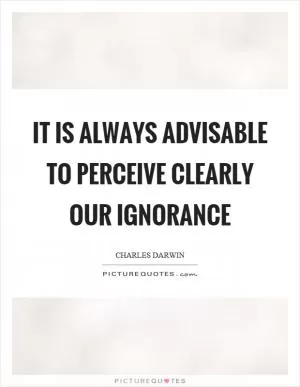
 Friendship Quotes
Friendship Quotes Love Quotes
Love Quotes Life Quotes
Life Quotes Funny Quotes
Funny Quotes Motivational Quotes
Motivational Quotes Inspirational Quotes
Inspirational Quotes